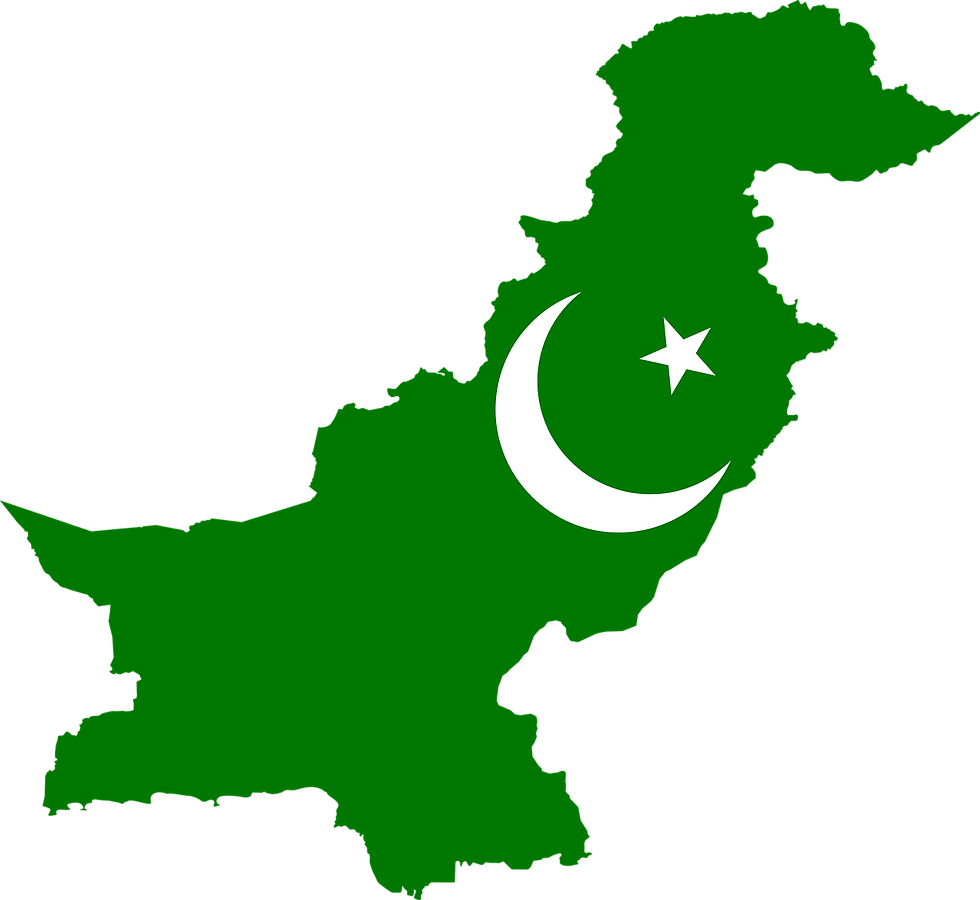Genocide of Shia Muslims in Pakistan
- S. Mohammed
- Sep 18, 2020
- 3 min read
Updated: Dec 23, 2024
In light of recent attacks on Shia Muslims in Pakistan, S. Mohammed criticises the systematic oppression faced by the community - such discrimination has taken the form of online harassment, sexual assault, and murder. This Op-Ed discusses the violence instigated by militant groups, alongside the government's tendency to turn a blind eye. Learn more about the history of these crimes, the causes, and the need for change.
From the very foundation of Pakistan, the presence of Shia Islam was strong. Prior to the partition of 1947, its heritage was widespread across the Indian Subcontinent. Muhammad Ali Jinnah was, according to many, a member of the Shia Muslim community. He was the eventual founder of Pakistan: the first nation formed on the basis of Islam. However, throughout history, several members of this community have been brutally targeted, attacked, and murdered.

After the establishment of Pakistan, Shia Muslims routinely faced harassment and discrimination based on their sectarian identity. Since 1947, the Shia Muslim minority have complained of negligence regrading society’s and the government’s response to sectarian violence. Media outlets completely shun these reports due to pressure from the clerics of the other sect. The formation of groups like Sipah-e-Sahaba and Lashkar-e-Jhangvi, whose sole purpose is to exterminate and eradicate Shia Muslims from the state of Pakistan, clearly reflects the level of hatred shown towards this oppressed community. Every year there are sectarian clashes, resulting in further casualties for the community and the State as a whole. The systematic oppression by security forces, and the government’s deafening silence over police brutality suggests such violence is accepted as the ‘norm’. Since the early 1990s, nearly 4000 Pakistani Shias have been killed in sectarian attacks. Yet, these are only the official figures. Several other killings often go unreported, receiving minimal coverage.
Throughout 2020, militants continued to attack Shia Muslims in cold blood. Shia processions, which were officially licensed by the government, were attacked by radical groups. Participants were left with injuries, while the perpetrators were not held to account. Such counter-protests often promote the murder.
Socially, the community is misrepresented, and often demonized by the mainstream media. Sacred symbols, figures and names are also used in an inappropriate manner in literature, while social media has worsened hate speech and harassment against Shias.
Recently in late August 2020, several Shia Islamic clerics were arrested and charged with ‘blasphemy’ for simply performing their rituals in a peaceful manner. The government was condemned by several international groups who have condemned the systematic discrimination faced by the community. Stone pelting and frequent bomb blasts have taken place in areas where Shia Muslims form the majority, with processions being especially targeted.
There are several ways used by militant groups, media outlets and the Pakistani government to promote and instigate hate against this community. Firstly, the distribution of propaganda denouncing Shia Islamic beliefs, while abusing prominent members of that community has become widespread. It has led to the brainwashing of the public, preventing acceptance, and promoting hate towards this community. Over the past decade, Shias have fallen victim to several attacks and desecration of Mosques and sites. The violence has been highlighted by several International Human Rights groups. Yet, the media hides reports of such killings, and diverts the attention of the layman to another topic. In addition to these murders, women of the community are raped, without any consequence or punishment.
The government is instrumental in providing support to extremist groups, and does so by remaining silent on these abuses. At times, they have joined these militias to fuel hatred and disaccord. Even aside from the government, the political elite and parties have mostly kept a passive stance on these atrocities. The voice of the Shia Muslims is actively ignored by those in power, and is suppressed by the radical groups. However, the most important point is that the citizens of Pakistan are slowly becoming insensitive or neutral towards such horrendous abuses. As a result, they don’t help their fellow Shia Muslim citizens.
This is very alarming and has been described as an ‘slow genocide’. If this does not decrease or stop, it will lead to several unprecedented consequences on the society of Pakistan as well as the economy of Pakistan. Hopefully, Pakistan will introduce new steps and mechanisms to protect the Shia Islamic minority, amongst other minorities.

_edited.png)



Comments